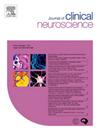神经外科新兵训练营对医学生实习准备的影响
IF 1.9
4区 医学
Q3 CLINICAL NEUROLOGY
引用次数: 0
摘要
对神经外科申请者来说,子实习是一个形成性的经历。没有正式的神经外科实习课程,学生们通过特别的在线资源和导师的指导来准备。学生可能会对这些关键的轮转感到措手不及,从而影响他们随后的表现和申请的成功。因此,我们开发了一个神经外科实习新兵训练营,并评估其对学生准备的影响。方法采用为期一天的猪尸体训练营,包括讲座和猪尸体实验室。调查前后分发评估能力和舒适的神经外科主题和技能,包括基于知识的多项选择题。前后得分比较采用单侧配对t检验;p值<;0.05被认为是显著的。结果参与者包括30名现场学生和80名虚拟学生。22名学生完成了前后调查,其中10名(45%)是面对面调查,12名(55%)是虚拟调查。与会者主要是男性(73%)和三年级医学生(55%)。参与者自我报告的知识在颅底、脊柱和创伤领域的1 - 5量表上平均增加了>;=1点(p <;0.001)。受试者自我报告的准备程度在放置室外引流管后平均增加了1分(p <;0.001),毛刺钻孔(p <;0.001),分流重编程(p <;0.001),患者体位(p = 0.004),椎弓根螺钉放置(p <;0.001),排水管清除(p <;0.001),图像引导配准(p = 0.009)。参与者报告说,他们对次级实习(p <;0.001),更好地掌握了期望(p <;0.001)。具体来说,学生在进行神经学检查时更有信心(p <;0.001),产生脊柱病理鉴别(p <;0.001),读取大脑和脊柱图像(p <;0.001),并且在夜间呼叫中表现良好(p = 0.004)。对于基于内容的问题,参与者的得分在参加训练营后平均增加了2分(14.2%)(p <;0.001)。通过新兵训练营,学生们提高了他们的知识,并为即将到来的轮岗做好了准备。其他机构也可以以最低的成本开展类似的新兵训练营,扩大获得这些关键教育机会的机会。本文章由计算机程序翻译,如有差异,请以英文原文为准。
The impact of a neurosurgical boot camp upon medical student preparedness for sub-internships
Background
The sub-internship is a formative experience for neurosurgical applicants. No formal neurosurgery sub-internship curriculum exists, with students preparing via ad hoc online resources and guidance from mentors. Students can feel unprepared for these crucial rotations, impacting their subsequent performance and application success. Therefore, we developed a neurosurgical sub-internship boot camp and evaluated its impact on student preparedness.
Methods
A one-day boot camp was conducted, including lectures and a pig cadaver lab. Surveys were distributed before and after to assess competency and comfort with neurosurgery topics and skills, including knowledge-based multiple-choice questions. Pre- and post-scores were compared with one-sided paired t-tests; a p-value < 0.05 was considered significant.
Results
Attendees included 30 in-person and 80 virtual students. Both pre-and post-surveys were completed by 22 students, 10 (45 %) in-person and 12 (55 %) virtual. Attendees were predominantly male (73 %) and third-year medical students (55 %).
Participants’ self-reported knowledge increased by a mean of >=1 point on a 1–5 scale within skull base, spine, and trauma domains (p < 0.001).
Participants self-reported preparedness increased by a mean of >=1 point for extraventricular drain placement (p < 0.001), burr hole drilling (p < 0.001), shunt reprogramming (p < 0.001), patient positioning (p = 0.004), pedicle screw placement (p < 0.001), drain removal (p < 0.001), and image guidance registration (p = 0.009). Participants reported feeling more prepared for sub-internships (p < 0.001) with a better grasp of expectations (p < 0.001). Specifically, students felt more confident in performing a neurological exam (p < 0.001), creating spine pathology differentials (p < 0.001), reading brain and spine images (p < 0.001), and performing well on overnight call (p = 0.004). For content-based questions, participant scores increased by an average of 2 out of 14 points (14.2 %) after boot camp participation (p < 0.001).
Conclusions
Through the boot camp, students improved their knowledge and felt more prepared for upcoming rotations. Other institutions can conduct similar boot camps at minimal cost, expanding access to these critical educational opportunities.
求助全文
通过发布文献求助,成功后即可免费获取论文全文。
去求助
来源期刊

Journal of Clinical Neuroscience
医学-临床神经学
CiteScore
4.50
自引率
0.00%
发文量
402
审稿时长
40 days
期刊介绍:
This International journal, Journal of Clinical Neuroscience, publishes articles on clinical neurosurgery and neurology and the related neurosciences such as neuro-pathology, neuro-radiology, neuro-ophthalmology and neuro-physiology.
The journal has a broad International perspective, and emphasises the advances occurring in Asia, the Pacific Rim region, Europe and North America. The Journal acts as a focus for publication of major clinical and laboratory research, as well as publishing solicited manuscripts on specific subjects from experts, case reports and other information of interest to clinicians working in the clinical neurosciences.
 求助内容:
求助内容: 应助结果提醒方式:
应助结果提醒方式:


